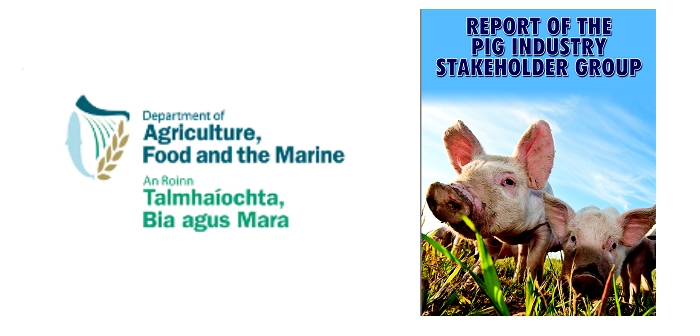Pig farming leaders in Ireland have asked their government to “consider” introducing financial incentives to help reduce sow numbers on certain farms and to enable other units, which may have severe or persistent disease problems, to “fully depopulate and restock with sows or to move into fattening”.
These are just two of more than 60 recommendations included in a report from Ireland’s pig industry stakeholder group which was recently presented to the country’s minister for agriculture, Simon Coveney.
The group’s recommendations cover the whole spectrum of pig production in Ireland, including issues relating to biosecurity, animal welfare, antibiotic usage, animal health, the pig salmonella control programme, quality assurance, marketing and feed.
The suggested introduction of financial incentives is contained in a section devoted to animal health concerns, with the following two requests being made:
- Examine the possibility of a financial incentive of €100 (£77) per sow for a limited period of time to encourage a reduction in sow numbers on farms where stocking rates are not sustainable.
- On farms where severe or persistent disease problems are present, consider the provision of a financial incentive of €200 (£154) per sow to enable producers to fully depopulate and restock with sows or to move into fattening. This incentive to be available for a two year period ending December 31, 2018.
The report also includes a straight-talking overview from the group’s chairman, Dr Seán Brady, which highlights the positives of Irish pig production but also acknowledges the sector’s weaknesses.
“The industry in Ireland has some particular strengths, for instance productivity is relatively good,” he said. “The industry is also compact and relatively well organised, and there is a willingness to look ahead and plan for the future.
“Notwithstanding these strengths, there is broad consensus that the pig sector in Ireland faces a number of difficult challenges, particularly in the animal health, animal welfare and related areas.”
He then listed the following key points of concern:
- Dealing with endemic diseases such as PRRS
- Trying to prevent the incursion of significant exotic diseases such as PED
- Issues around high salmonella levels
- Issues surrounding antimicrobial resistance/antibiotic usage
- Compliance with the highest welfare standards
“While these and other similar challenges are not unique to the Irish pig sector, in at least some areas it appears that Ireland is behind other countries in its approach,” said Dr Brady.
“The industry is currently operating with the negative consequences associated with these challenges. Addressing these issues has the potential to significantly improve overall productivity and competitiveness whilst delivering a more consistent and improved product into the market-place and satisfying the increasingly demanding consumer population.”




